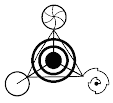Don’t let people tell you that Wallis Budge transliterations are inaccurate. There’s more to the story…
Excerpted from Wikipedia:
“…Budge was also a prolific author, and he is especially remembered today for his works on ancient Egyptian religion and his hieroglyphic primers. Budge’s works on Egyptian religion were unique in that he maintained that the religion of Osiris had emerged from an indigenous African people: “There is no doubt”, he said of Egyptian religions in Osiris and the Egyptian Resurrection (1911), “that the beliefs examined herein are of indigenous origin, Nilotic or Sundani in the broadest signification of the word, and I have endeavoured to explain those which cannot be elucidated in any other way, by the evidence which is afforded by the Religions of the modern peoples who live on the great rivers of East, West, and Central Africa … Now, if we examine the Religions of modern African peoples, we find that the beliefs underlying them are almost identical with those Ancient Egyptian ones described above. As they are not derived from the Egyptians, it follows that they are the natural product of the religious mind of the natives of certain parts of Africa, which is the same in all periods.”
Budge’s contention that the religion of the Egyptians was essentially identical to the religions of the people of northeastern and central Africa was regarded by his colleagues as impossible, since all but a few followed Flinders Petrie in his contention that the culture of Ancient Egypt was derived from an invading Caucasian “Dynastic Race” which had conquered Egypt in late prehistory and introduced the Pharaonic culture.”
“…Though his books remain widely available, translation accuracy has improved in detail, along with significant revisions in dating, since Budge’s day. The common writing style of his era—a lack of clear distinction between opinion and incontrovertible fact—is no longer fashionable in scholarly works.”










